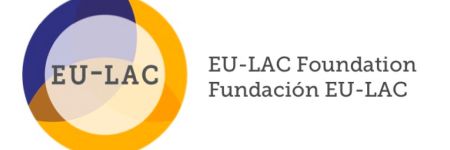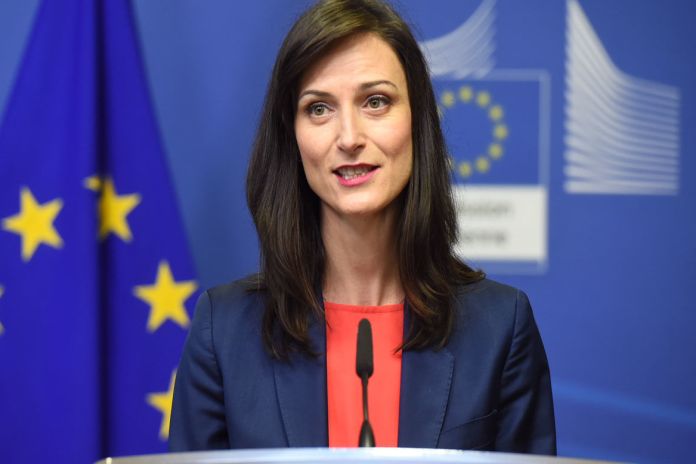By Mariya Gabriel
Latin America and the Caribbean and the European Union share common history, languages, religion and most importantly values of democracy and human rights. Our strategic partnership has been strengthened over the years. Before becoming European Commissioner, I had the opportunity of working closely with this continent, more specifically with Colombia and Peru. This happened as a member of the European parliament, working on short-stay visa waiver. This work has brought tangible results and benefits to our students, to the tourism and culture sector, because at its core there are shared values.
As European Commissioner responsible for Innovation, Research, Culture, Education and Youth (also sports, despite not being mentioned in my title), I will continue to strengthen the cooperation with Latin America.
Knowledge is indeed the most solid basis to build a model of sustainable and inclusive development. As such, our work with the region has concentrated on improving the quality of higher education, innovation and technology and social inclusion.
One of the outcomes of the 2nd EU-CELAC Summit of Heads of State and Government in 2015 was to advance towards a future EU-LAC Higher Education Area. Subsequent academic cooperation efforts have aimed to integrate, modernise and internationalise the higher education systems in both regions through common work on quality assurance, accreditation and evaluation systems, which are the basis for academic mobility and mutual recognition of study periods and diplomas.
The Joint Communication on EU-Latin America and the Caribbean relations “Joining forces for a common future” (April 2019) called for building on existing programmes (Erasmus+ and Horizon 2020) to share experiences, transfer technology, boost capacity and increase the academic mobility of students, researchers and staff. This would enhance skills and employability and strengthen regional dialogue among academia and policymakers.
For the first time, at European level, Education is put together with Research and Innovation. This makes things easier to pursue and develop a real knowledge strategy finding synergies between the policies, programmes, and activities.
In research and innovation, the EU is working with Latin American countries to develop a Common Research Area that will connect scientists in both regions more closely. This project is built on three fundamental pillars: research infrastructures, mobility of scientists, and on grand societal challenges, such as health, environment and digital transformation.
The regional dimension of our R&I cooperation is very important and builds on the specific Science & Technology Agreements in place with some Latin American countries. The necessity to connect the brightest minds is a fundamental building block of excellent science. Because of this, the EU offers the whole world – including the Latin America and the Caribbean – access to its biggest programme for Research and Innovation, Horizon 2020; and in future to its successor, Horizon Europe.
The EU also offers extensive academic mo – “Academic cooperation with Latin America and the Caribbean”. Mariya Gabriel European Commissioner for Innovation, Research, Culture, Education and Youth EU-LAC NEWSLETTER 05/2020 EU-LAC NEWSLETTER 05/2020- 3 bility and bottom-up cooperation opportunities through its flagship education and training programme, Erasmus+.
Participation of Latin American countries in both Horizon 2020 and Erasmus+ is very active and enthusiastic. More specifically, the Marie Skłodowska-Curie Actions (MSCA) are the most international action of Horizon 2020, accounting for more than 50 percent of all participation from the region. The MSCA support the career development, training and skills acquisition of researchers through trans-national, cross-sectoral and interdisciplinary mobility, as well as the development of excellent and innovative doctoral training programmes. Argentina ranks among the top five best-performing third countries in MSCA, and Brazil and Chile are also in the top 10 best-performing list, underlining the region’s strong participation.
Erasmus+ and its predecessor programmes have played a major role in the inclusive development of the higher education sector by facilitating the sharing of knowledge and technology transfers. This is undertaken through the exchange of students and staff (more than 9,000 exchanges since 2015) and university-university cooperation, which includes 78 capacity-building projects with the participation of Latin American and Caribbean universities. The Erasmus Mundus Joint Master Degrees also award direct scholarships based on excellence and each year Brazilian and Mexican students receive more scholarships than any other nationality, with Colombian students also in the top 10.
The European Commission is currently negotiating the future Erasmus and Horizon programmes with the European Parliament and the Council of the EU for the period 2021-2027. Our proposal for international cooperation in Erasmus is to continue with what is currently working well, in terms of the main actions and features, and to expand the international dimension beyond higher education to cooperation in vocational training and sport. The level of ambition will depend on the parallel negotiations on the Multi-Annual Financial Framework, which sets the legal and financial architecture of the EU budget for the next seven years.
After many years of joint effort, it is clear that both regions share common views. This is evidenced by the interest of scientists and scholars from Latin America working on Horizon 2020 and Erasmus+ projects, regularly selecting topics of the highest importance to both regions: the values and vital interests of our regions and citizens are clearly well aligned.
The strengthening of our relations will also be possible thanks to a better cooperation at academic level and the EU-LAC Foundation has a crucial role in this regard. Since its creation in 2010, this unique platform regrouping 61 countries of both continents plus the European Union itself, has strengthened and promoted the strategic bi-regional relationship, enhancing its visibility and fostering active participation of the respective civil societies. I would thus like to conclude by tanking you for your work and for your our excellent collaboration.






